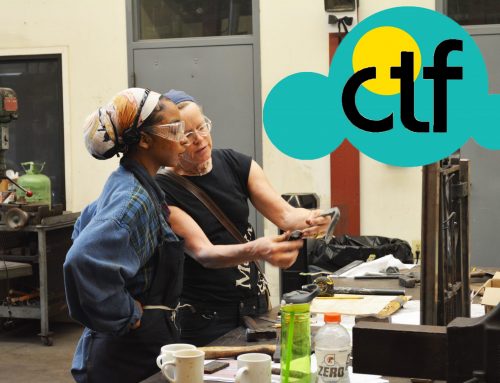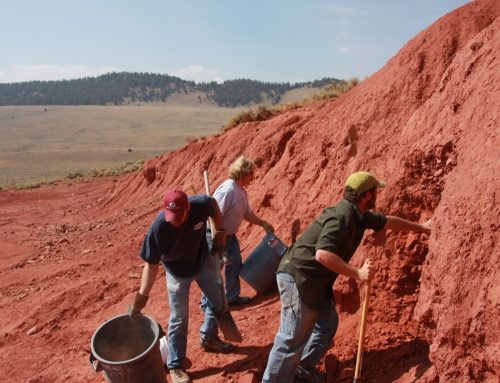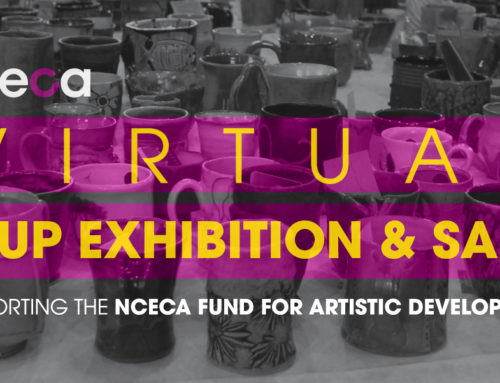The Southern slave potter, Dave, described his masterful storage vessels as “Great & Noble.” Today, collectors and museum directors all over the country join in that praise. His pots, which he turned from about 1820 to about 1870, are especially valued for the fact that he signed them and for the rhymed inscriptions he sometimes added to them. Such a daring display of letters was unheard of for a man in bondage in ante-bellum South Carolina, where slave literacy had always been frowned upon; in 1834, when Dave was 33, it officially became a crime to teach a slave to read or write.
One group of my ancestors lived in South Carolina, most of them in the little town of Edgefield, where Dave also lived and worked. They were the Landrums and the Mileses, pottery entrepreneurs. When, by chance, I discovered that they had owned Dave for much of his life, I was stunned—pleased to find that I was linked to one of the South’s great artisans, yet dismayed that slavery was the mechanism that connected us. Like many white Americans with Southern roots, I had grown up with a suspicion that my ancestors had been slaveholders. It was a disturbing thought, and I had chosen not to face it directly. I couldn’t do that anymore.
I set out to uncover all I could about this amazing man. How had he managed to rise above the limitations of slavery and become a creative artist in his own right? What were the men like who held him in bondage? Though his owners were surprisingly close to me in my family tree—my grandfather was born in Edgefield during Dave’s lifetime—I determined to put aside family loyalty and look clearly at whatever I found, no matter how painful it might prove to be.
Even so, I was not prepared for the story that I uncovered: The world in which Dave turned his now famous vessels was a mix of violence, trust, punishment, creativity, and political strife. The contrasts were startling. On one awful occasion, a female pottery slave who worked with Dave hanged herself after being whipped by their owner, Franklin Landrum, a member of my family. Yet, when Dave and another of my ancestors, Lewis Miles, disagreed about the strength of a handle he had just fashioned, Dave felt secure enough to wittily comment on the incident in an inscription: “Lm says this handle will crack.”

Leonard Todd on the steps of the Edgefield County Courthouse, with two pots by Dave. (photo by Brook Facey)
Dave wrote about this complex, black-white life on many others of his pots. He issued warnings (“If you dont repent, you will be, lost”); he courted the woman he loved (“Dearest miss, spare me a Kiss”); and, most surprisingly to us, he confirmed his status as a slave (“Dave belongs to Mr. Miles”). These inscriptions, in themselves, do not appear to be words of protest, but the very act of writing them in the midst of repression formed a resounding cry. Dave’s fearless self-assertion ensured that he would be remembered long after those who controlled him were forgotten.
By searching through my family papers, through documents preserved in archives across South Carolina, and through Dave’s own inscriptions, I strove to create a picture of Dave’s vibrant life in a book, Carolina Clay. Still, I’m aware that a great distance continues to separate me from him. It is an inevitable distance, encountered by every writer who tries to recreate the life of someone else. As the historian, Simon Schama, has said, “We are doomed to be forever hailing someone who has just gone around the corner and out of earshot.”
In truth, that distance seems insurmountable for a white, 21st-century man trying to understand the life of a 19th-century black slave. How does one bridge that gap? The answer for me, for all of us, may be to concentrate not on our differences but on what we have in common. Perhaps the love of pottery is a place to start.
Leonard Todd is the author of Carolina Clay: The Life and Legend of the Slave Potter, Dave (W. W. Norton). His book was one of four finalists for The Marfield Prize: The National Award for Arts Writing. He also won the Writing Award from the South Carolina Center for the Book. He has spoken about Dave on National Public Radio, at the Smithsonian Institution, and at Harris Manchester College, Oxford. More information about him and about Dave Drake is at www.leonardtodd.com and at www.facebook.com/leonardtoddbooks.





